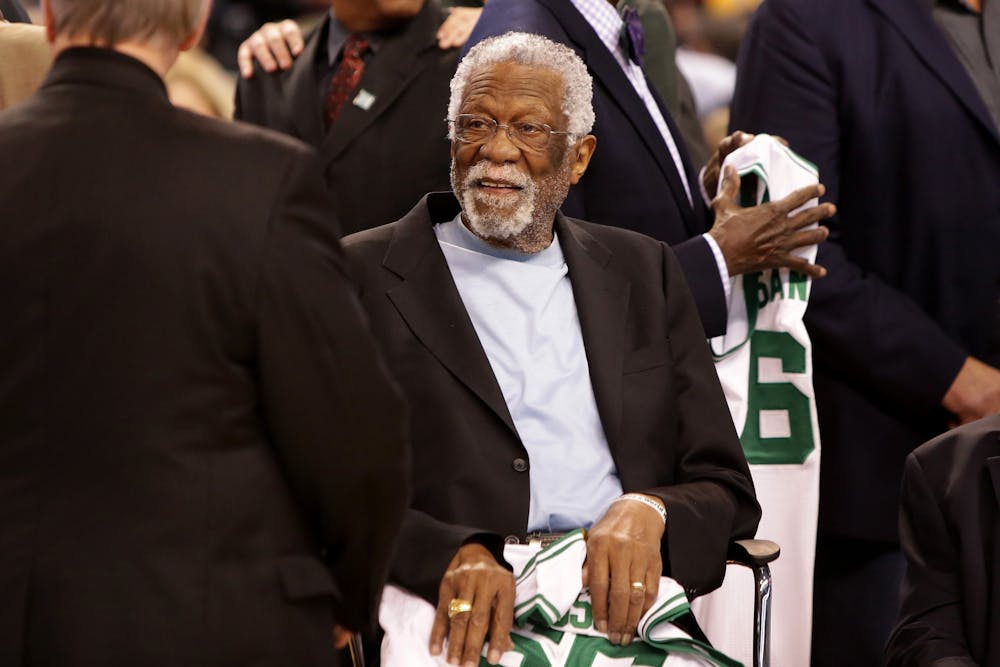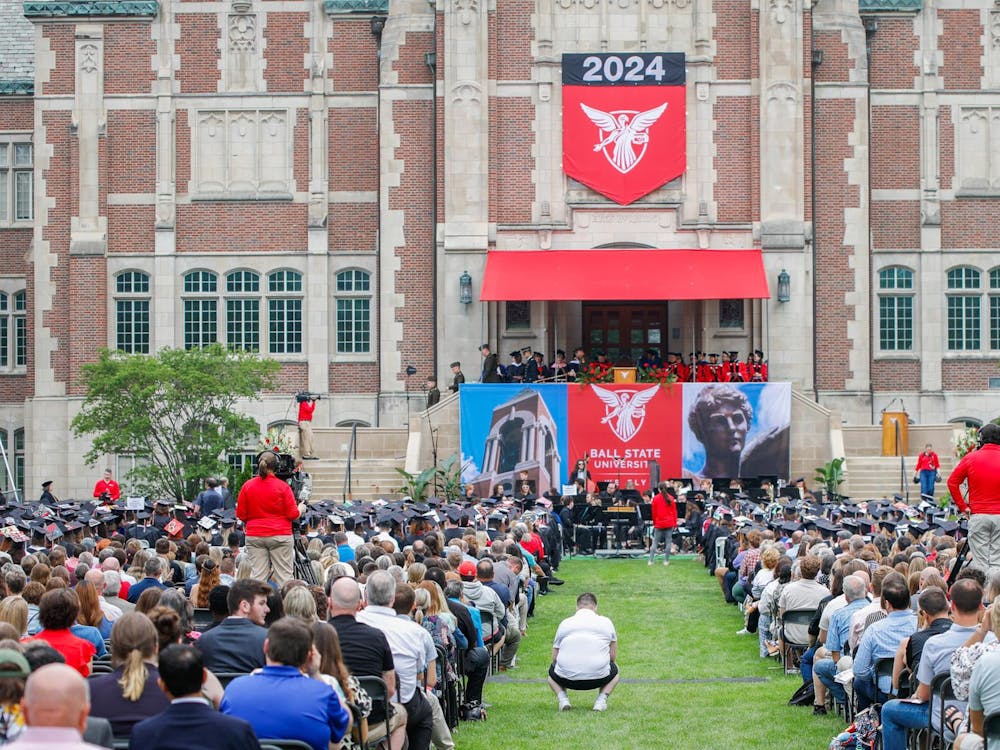Kyle Smedley is a journalism and telecommunications major and writes for The Daily News. His views do not necessarily reflect those of the newspaper.
Since the announcement of his passing July 31, 2022, so much has been said of former Boston Celtic and basketball legend Bill Russell. He was a man who had no blemish on his reputation. A man who stood for something greater.
A man who was bigger than basketball.
Russell has countless accomplishments on his résumé. A 12-time All-Star, an 11-time All-National Basketball Association (NBA) team member, a five-time Most Valuable Player (MVP), a two-time National Collegiate Athletic Association (NCAA) Champion at the University of San Francisco, a member of the NBA’s 75th-anniversary team, a Hall of Famer and an unprecedented 11-time NBA Champion.
Doing research on his career doesn't do the trick, and with the standards most NBA fans hold players legacies to, Russell's greatness is often underrated.
All the accolades listed above should be enough, but this was also a man who averaged 22.8 rebounds per game over his career. This was an athlete that led the Celtics to multiple championships as a player/coach, a man who was 21-0 in elimination games in the playoffs.
At the very least, one thing remains undisputed. Russell is the greatest winner in NBA history.
He may just be the greatest winner in sports history. 11 Championships is a number no one will ever come close to.
Russell also made history by becoming the first ever Black head coach in any major professional sport when he became head coach of the Boston Celtics in 1966.
Along with that, perhaps Russell’s greatest accomplishment was standing by Martin Luther King Jr. as he delivered his famous “I Have a Dream” speech in 1963, helping lead a fight to end segregation and create racial equality in an America that desperately needed it. Yes, Russell was a larger-than-life athlete, both figuratively and literally, yet he may have been an even greater civil rights activist and pioneer.
His fights for change alongside Martin Luther King Jr. rival his greatest battles on the basketball court. In fact, his leadership in the Civil Rights Movement of the 1960s earned him the Presidential Medal of Freedom in 2011.
In my mind, Russell is the NBA’s equivalent to Major League Baseball (MLB)’s Jackie Robinson.
Russell’s legendary No. 6 ought to be retired across the NBA like the MLB did with Robinson’s No. 42. While Russell didn’t break the color barrier in his sport like Robinson did, he did stand for something greater.
The MLB holds Jackie Robinson Day every season on April 15, the date Robinson broke the color barrier. Every player wears the number 42 for just one day to honor the legacy of Robinson.
For the NBA, they could pair Bill Russell Day with Martin Luther King Jr. Day, a fitting tribute to the two men that fought side-by-side for racial equality.
While I never witnessed the greatness of Russell on the court, I did get the pleasure of seeing him as an ambassador for the NBA like no other former athlete was. When he made an appearance after the NBA Finals each season to present the best player of the series with the Bill Russell Finals MVP, it felt momentous.
It felt like a living legend was on my TV screen because that's exactly what Russell was until his last breath. Russell's presence was unrivaled, continuing to grow in lore as the years passed by.
When the news broke of his passing, I was truly shocked. Russell seemed like an unshakeable man, who was ever strong, which by all accounts, he was.
That said, Russell's passing shouldn't hold too much grief. With his passing, basketball fans and those continuing to fight for racial equality should celebrate the life and legacy of one of the greatest athletes of all time.
Russell is a man who the NBA will undoubtedly continue to celebrate for years to come. He was and is not just a basketball icon, but a sports and civil rights icon.
Contact Kyle Smedley with comments via email at kyle.smedley@bsu.edu or on Twitter @smedley1932.





